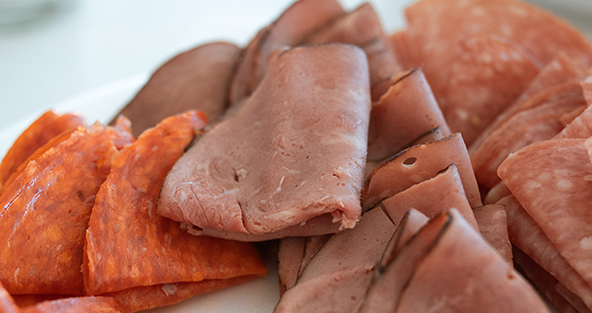
Deli meat and cheese contaminated with Listeria monocytogenes have been the source of recent food recalls.
Recent food recalls heighten awareness of Listeria
K-State food scientist explains Listeria monocytogenes and how to prevent illness
Dec. 7, 2022
By Maddy Rohr, K-State Research and Extension news service
MANHATTAN, Kan – Listeria monocytegenes bacteria was recently in the national news as the cause of 16 foodborne illnesses and one death, possibly caused by eating contaminated deli meat and or cheese, said Kansas State University food scientist Karen Blakeslee.
She said Listeriosis is a serious infection caused by L. monocytogenes bacteria and primarily affects pregnant women, newborns, older adults and those with weakened immune systems.
“In pregnant women, infections have led to miscarriage, stillbirth, premature delivery, or life-threatening infection in the newborn,” Blakeslee said.
Symptoms can include fever, muscle aches, nausea, vomiting, diarrhea, headache, stiff-neck, confusion, loss of balance and convulsions. Symptoms can appear 1-4 weeks after consuming contaminated food. Some cases have appeared 70 days after exposure, Blakeslee said.
“Other associated foods include hot dogs, deli salads, unpasteurized dairy products and fresh fruits and vegetables,” she said. It is recommended that pregnant women and those with weakened immune systems avoid these foods.
According to Blakeslee, cooking foods to safe temperatures can prevent illness due to L. monocytogenes, which can grow within a temperature range of 34 to 113 degrees Fahrenheit. Additionally, using pasteurized dairy products, preventing cross-contamination and keeping surfaces and utensils clean will aid in preventing illness.
Blakeslee, who is the coordinator of K-State’s Rapid Response Center for Food Science, publishes a monthly newsletter called You Asked It! that provides numerous tips on being safe and healthy. More information is also available from local extension offices in Kansas.

